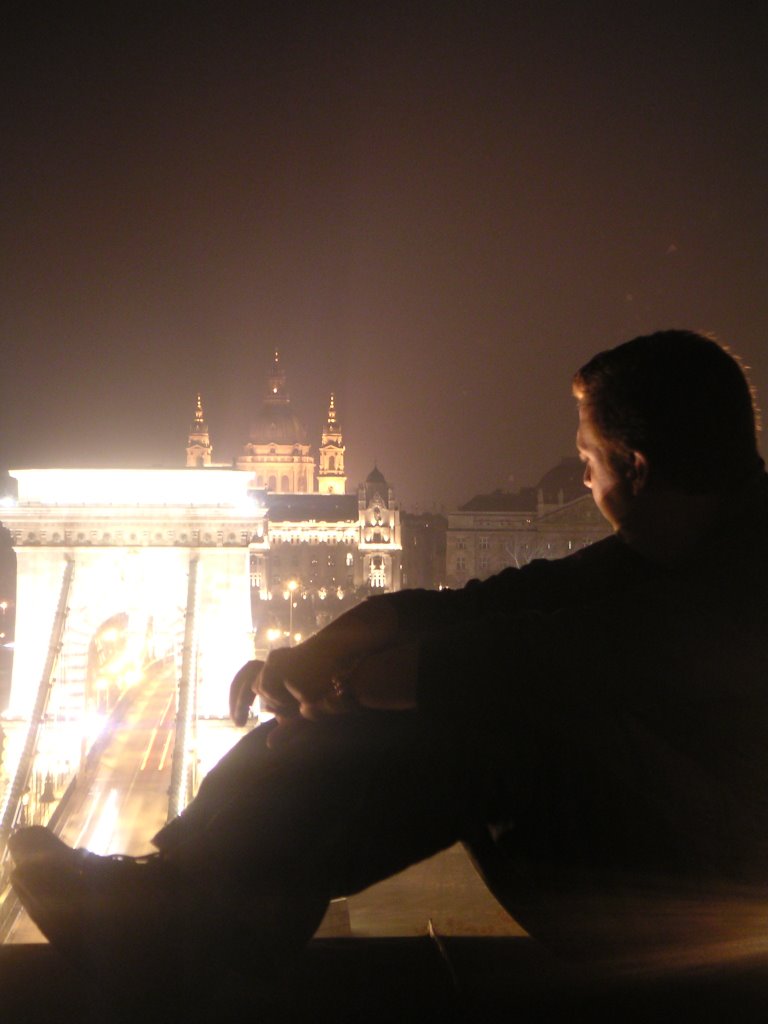Two friends and I were discussing our various religious traditions today at lunch. The subject of Communion came up. I'd thought about Communion and its meanings before, but the discussion at this meal challenged me to elaborate. Here were some thought (old and new) that I came up with.
It was Communion Sunday. All the words were said and the baskets filled. And as the choir stood to sing, the congregation readied itself to enter the place of Communion. Expecting an ornate choral selection, the congregation was surprised by what they heard. It was a simple tune with simplistic notions. No large swells or dramatic pauses, plain harmonies. The words paralleled the simple structure. It began “At the table of the Lord bread is broken, At the Table of the Lord, we are fed, We remember now the words that Christ has spoken, ‘this is my body,’ He said.”
When I was growing up, I always thought Communion was fun. It was the one Sunday a month where it was perfectly acceptable to eat in Church, not to mention the fact that my fruit juice of choice was always served. I knew that it was special, but for different reasons than I recognize now.
I grew up in a tradition in which Communion was highly symbolic. As Jesus requested, we did it to remember him. But as I evolved in my own faith, I realized that Communion is hardly just a memorial that we do weekly, monthly, or quarterly.
On a planning retreat a little over a year ago, my peers and I were eagerly scheduling events for the coming semester. Our advisors jumped in the process with us—as eager to plan as we were. But it was tiring and we all went to bed exhausted. The next morning we students awoke hungry, but our advisors would not allow us to prepare our breakfast. Instead they insisted we wait in the common room. Sleepily, we obliged.
They came into our meeting room with a loaf of bread and cup of juice. That morning, before the craziness of planning and brainstorming, before even the satisfaction of pancakes, we were afforded an even more simplistic satisfaction. We were served the Eucharist. It was the first nourishment we experienced that day—physically and spiritually. We were embraced in the commonality of our beginning and encouraged to acknowledge each other as a beloved child of God.
Communion is so much more than a simple act, a simple memory. It is remembrance of the reason for our life. In taking the bread and wine we are renewed in the most fundamental reality of our Christian lives—that we are an Easter people.
Taking the bread and wine, we are reminded that Jesus did die. He did suffer a horrible death imposed by a ungracious people in a harsh world. As we share the simple feast, we are reminded that we are part of that ungracious people and we are still living in that harsh world.
But in the Eucharist is also the truth that the world did not end on Good Friday. Christ died. But He rose. Communion often entrenches guilt on those who partake of the feast. Breaking the bread and drinking the juice reminds them of the suffering of Christ. Communion is much more than a time of mourning. The Eucharist is a grateful meal—one eaten with respectful remembrance and hopeful joy. Yes, Jesus died. Hear the good news! He rose. The Table of Lord is open to us. We are an Easter People.
Every year on Ash Wednesday many faithful attend services to have the ashes imposed and to begin the season of Lent which leads up to Maundy Thursday, Good Friday, and of course, Easter. Oftentimes, it is a somber service. A time of remembering the sacrifces made by Christ as we approach his crucifixion and his resurrection.
Tradition is that in Lent, we try to deny ourselves of something paralleling Christ's 40-day temptation, but also reminding us of our everyday challenges. We try to give up something, but rarely are we ever truly successful. I used to find that fact extremely irritating. I would think "I'm trying so hard..." But that's the point. We try desperately to change, to follow Christ, to find God, but we're human. And in our humanity, we can only hope. The key, then, is the hope in the reconciliation we find to God through Christ.
We aren't supposed to succeed on our own. Through grace we are transfigured and given strength.
And as we wind our way through Lent and approach Easter Sunday, our need for that connection through Christ becomes more apparent to us. We realize we can't do it on our own. We realize we need help.
And just when we are ready to give up, in the midst of the darkness of Maundy Thursday and Good Friday, we see the dawn of the third day coming. And we know it's going to be alright.
Each time I share the bread and the cup with my friends and family, I remember the sacrifice, the dispair. But I also am reminded of hope and light. Grace and reconciliation and justice flow through that cup and are mixed in with the bread dough. We partake in those ideas and they nourish us as much as the juice and grains supplement our diets.
I take Communion and feel whole again.
That's what communion symbolizes to me.
blessings.
jon.
Subscribe to:
Post Comments (Atom)






No comments:
Post a Comment